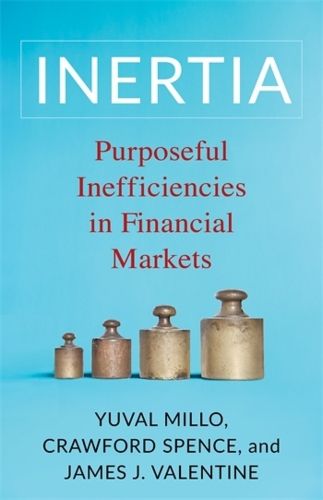Readings Newsletter
Become a Readings Member to make your shopping experience even easier.
Sign in or sign up for free!
You’re not far away from qualifying for FREE standard shipping within Australia
You’ve qualified for FREE standard shipping within Australia
The cart is loading…






Financial professionals are paid as if they were capable of "beating the market" on a regular basis. In fact, active fund managers routinely underperform low-cost index funds, and financial analysts frequently produce inaccurate stock recommendations-and many receive large fees even when their clients are losing money. Why do financial intermediaries still persist in the investing world despite this track record? Economic theory, obsessed with notions of market efficiency, has no good answer.
This book demonstrates how long-standing social relationships within the investing world contribute to a state of inertia, which prevents substantive change to the status quo. In financial markets-as in many other settings-social groups persist through habit, routine, and path dependency. Financial intermediaries, for their part, use their positions to maintain and reproduce a state of affairs from which they benefit. Although financial professionals portray their world as one of dynamism and continuous innovation, in reality a strategic and purposeful inertia often prevails. An incisive sociological analysis of the communities that constitute financial markets, Inertia offers new insight into the social structures and dynamics that shape economic action.
$9.00 standard shipping within Australia
FREE standard shipping within Australia for orders over $100.00
Express & International shipping calculated at checkout
Financial professionals are paid as if they were capable of "beating the market" on a regular basis. In fact, active fund managers routinely underperform low-cost index funds, and financial analysts frequently produce inaccurate stock recommendations-and many receive large fees even when their clients are losing money. Why do financial intermediaries still persist in the investing world despite this track record? Economic theory, obsessed with notions of market efficiency, has no good answer.
This book demonstrates how long-standing social relationships within the investing world contribute to a state of inertia, which prevents substantive change to the status quo. In financial markets-as in many other settings-social groups persist through habit, routine, and path dependency. Financial intermediaries, for their part, use their positions to maintain and reproduce a state of affairs from which they benefit. Although financial professionals portray their world as one of dynamism and continuous innovation, in reality a strategic and purposeful inertia often prevails. An incisive sociological analysis of the communities that constitute financial markets, Inertia offers new insight into the social structures and dynamics that shape economic action.